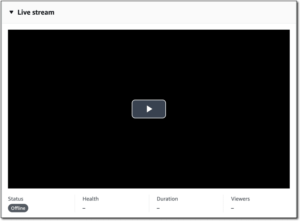At our company, we understand the critical role that liability insurance plays in safeguarding cottage food operations. In this comprehensive guide, we will delve into the significance of liability insurance for cottage food businesses, outlining the reasons why it is indispensable and how it ensures the long-term success and protection of your venture. Whether you are a seasoned cottage food entrepreneur or just starting, this article will provide you with essential insights that can help you outrank your competitors and dominate the Google search results.
Table of Contents
Understanding Cottage Food Operations
Before we delve into the details of liability insurance, let’s define what cottage food operations entail. Cottage food businesses refer to small-scale, home-based enterprises that produce and sell homemade food items directly to consumers. These businesses often operate under specific regulations and may have limitations on the types of products they can sell, the sales volume, and the distribution channels.
The Legal and Financial Risks Faced by Cottage Food Businesses
Cottage food operators face various risks that could potentially lead to legal and financial implications. Some of the common risks include:
1. Food Contamination
Contamination of food products can occur due to mishandling, improper storage, or cross-contamination. In the unfortunate event that a consumer falls sick or suffers from foodborne illnesses after consuming your products, you could be held legally responsible.
2. Allergen Mislabeling
Failure to disclose allergens accurately on your product labels could result in severe allergic reactions for consumers. This may lead to lawsuits and costly legal proceedings.
3. Property Damage
Running a home-based food business involves using your personal kitchen and equipment. In case of any property damage caused during the production process, you may be liable for the repairs.
4. Advertising Issues
If your marketing claims are deemed misleading or false, it could lead to false advertising lawsuits and damage your brand’s reputation.
The Benefits of Liability Insurance
Having a comprehensive liability insurance policy tailored to your cottage food business can offer several advantages that ensure your protection and peace of mind:
1. Financial Protection
Liability insurance can cover legal expenses, settlements, and judgments, saving your business from potential bankruptcy due to unexpected legal claims.
2. Product Liability Coverage
With liability insurance, you are safeguarded against claims related to foodborne illnesses, allergic reactions, or other health-related issues caused by your products.
3. Property Damage Coverage
Insurance can help cover the costs of repairing or replacing damaged property, including your personal kitchen equipment.
4. Personal Injury Coverage
In the event of accidents or injuries that occur on your business premises, liability insurance can provide coverage for medical expenses and potential legal claims.
5. Brand Reputation
Having liability insurance showcases your commitment to consumer safety and can enhance the trust and credibility of your brand.
How to Choose the Right Liability Insurance Policy
Selecting the right liability insurance policy for your cottage food operation is essential to ensure adequate protection. Here are some factors to consider when choosing a policy:
1. Coverage Limits
Evaluate the coverage limits of the policy to ensure they align with your business’s specific needs and potential risks.
2. Policy Exclusions
Carefully review the exclusions of the policy to understand what risks may not be covered and if additional riders are needed.
3. Premium Costs
Compare premium costs from different insurance providers to find a balance between affordability and comprehensive coverage.
4. Customer Reviews
Research customer reviews and ratings of insurance companies to gauge their reliability and customer service.
Implementing Safety Protocols
While liability insurance offers vital protection, it is equally important to implement robust safety protocols in your cottage food business. Some essential steps include:
- Sanitation Practices: Maintain a clean and hygienic workspace to minimize the risk of food contamination.
- Labeling Compliance: Ensure accurate and comprehensive allergen information on product labels to protect consumers.
- Product Testing: Regularly test your food products for quality and safety to maintain consistency and meet regulatory standards.






